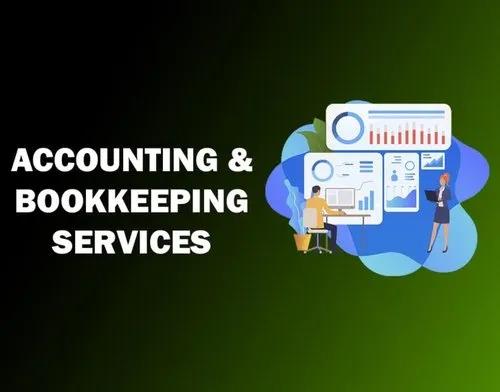Why Global Companies Rely on SAP Bookkeeping Services

In a world where financial accuracy, compliance, and real-time decision-making are vital to global success, many multinational companies are turning to SAP bookkeeping services. SAP—short for Systems, Applications, and Products in Data Processing—offers powerful enterprise resource planning (ERP) tools that streamline financial operations, making them more efficient, accurate, and globally consistent.
But what exactly makes SAP bookkeeping the preferred choice for global organizations? Let’s explore why these services have become a must-have in the modern finance playbook.
1. Standardized Processes Across All Locations
Global companies typically operate in multiple countries, each with its own financial regulations, tax systems, and reporting standards. Managing books across such diverse regions can quickly become chaotic without the right technology.
SAP bookkeeping services offer standardized financial processes across all geographies. Whether a business is operating in New York, London, or Tokyo, SAP can create a unified framework for financial entries, tax reporting, invoice management, and bank reconciliation. This level of consistency simplifies internal audits, promotes transparency, and supports faster consolidation of financial data at the global level.
2. Real-Time Financial Visibility
In fast-moving global markets, waiting weeks for monthly closing reports is not an option. SAP bookkeeping gives companies real-time access to financial data, enabling leaders to make informed decisions faster.
For example, SAP allows CFOs and finance teams to view up-to-date profit and loss reports, cash flow trends, account balances, and outstanding payables or receivables—all in one dashboard. These insights are crucial when managing currency risks, planning investments, or responding to geopolitical shifts that may affect business operations.
3. Compliance with International Accounting Standards
Global companies must navigate a complex web of compliance regulations like IFRS (International Financial Reporting Standards), GAAP (Generally Accepted Accounting Principles), VAT regulations, and local tax laws.
SAP’s advanced bookkeeping modules come with built-in compliance tools that help ensure financial practices align with global and local standards. These tools automatically adapt to country-specific rules, generate region-specific tax reports, and ensure audit-readiness—reducing the risk of non-compliance and penalties.
4. Seamless Integration Across Departments
SAP is not just a bookkeeping tool—it’s a comprehensive ERP system. This means the accounting and bookkeeping functions are integrated with other core departments, such as inventory, procurement, payroll, and sales.
For global companies, this integration results in cleaner data flows, less duplication, and fewer manual errors. For example, when a purchase order is created in the procurement module, the financial impact is automatically recorded in the books. Similarly, payroll data processed across multiple countries feeds directly into the general ledger, maintaining accuracy and transparency across the organization.
5. Scalability to Support Global Expansion
As companies expand into new regions, they need bookkeeping systems that can scale quickly and reliably. SAP is designed for growth, making it easy to add new subsidiaries, currencies, tax systems, and user roles without rebuilding financial systems from scratch.
SAP bookkeeping services allow businesses to onboard new locations and teams while maintaining financial control and oversight from the central office. This scalability is essential for mergers, acquisitions, or organic expansion into new global markets.
6. Automation That Saves Time and Reduces Costs
Manual bookkeeping is slow, error-prone, and expensive—especially on a global scale. SAP bookkeeping services leverage automation to handle routine accounting tasks such as journal entries, invoice processing, bank reconciliation, and tax calculations.
By reducing manual work, companies lower the risk of human error, free up their finance teams for higher-level strategic work, and cut operational costs in the long run. Automation also supports faster month-end and year-end closing, helping global companies meet tight financial deadlines with confidence.
7. Data Security and Risk Management
With cyber threats on the rise and increasing data privacy regulations like GDPR, global companies need finance systems that are both secure and compliant.
SAP bookkeeping services are supported by enterprise-grade data security features, including role-based access, data encryption, and detailed audit trails. These features ensure that only authorized personnel can access sensitive financial data, and every transaction is traceable and documented—reducing the risk of fraud and unauthorized activity.
8. Better Collaboration with Outsourced Teams
Many global companies outsource parts of their finance function—such as accounts payable, payroll, or tax filing—to specialized providers. SAP’s cloud-based architecture makes it easy to collaborate with outsourced bookkeeping teams in real-time, regardless of their location.
With shared access to the same financial dashboards and reports, internal and external teams can work in sync, resolve discrepancies faster, and ensure that all transactions are properly recorded and categorized.
9. Informed Decision-Making with Smart Analytics
SAP comes with built-in analytics and reporting tools that convert raw financial data into actionable insights. CFOs and financial controllers can use SAP to track KPIs, monitor cash flow, forecast revenue, and run “what-if” scenarios—especially useful during market volatility or strategic planning sessions.
This level of insight empowers global businesses to make data-driven decisions and stay competitive in their industry.
Final Thoughts
As globalization continues to reshape the business landscape, companies need smarter, more reliable systems to manage their books and ensure financial accuracy. SAP bookkeeping services offer exactly that—real-time visibility, scalability, compliance, automation, and centralized control.
That’s why global companies, from multinational enterprises to fast-growing mid-sized firms, are increasingly relying on SAP bookkeeping to streamline their operations, reduce financial risk, and make smarter decisions—no matter where in the world they operate.
- Art
- Causes
- Crafts
- Dance
- Drinks
- Film
- Fitness
- Food
- Games
- Gardening
- Health
- Home
- Literature
- Music
- Networking
- Other
- Party
- Religion
- Shopping
- Sports
- Theater
- Wellness


